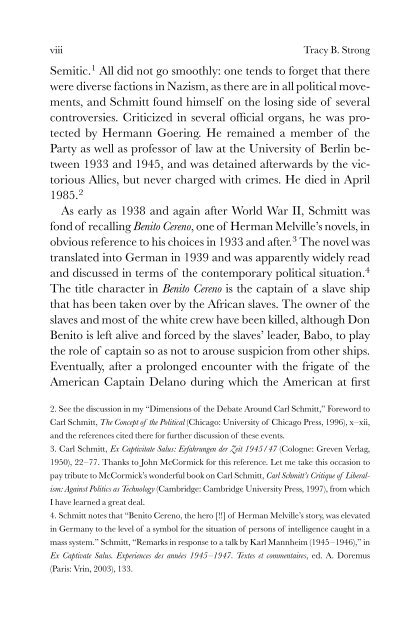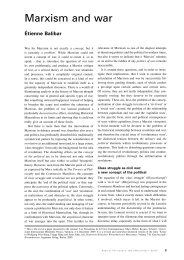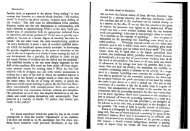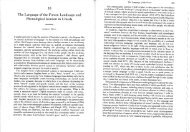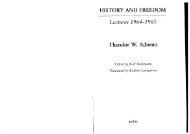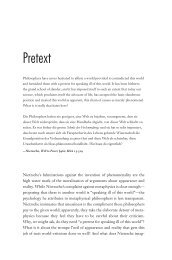Schmitt-Political Theology I.pdf - Townsend Humanities Lab
Schmitt-Political Theology I.pdf - Townsend Humanities Lab
Schmitt-Political Theology I.pdf - Townsend Humanities Lab
Create successful ePaper yourself
Turn your PDF publications into a flip-book with our unique Google optimized e-Paper software.
viii Tracy B. Strong<br />
Semitic. 1 All did not go smoothly: one tends to forget that there<br />
were diverse factions in Nazism, as there are in all political movements,<br />
and <strong>Schmitt</strong> found himself on the losing side of several<br />
controversies. Criticized in several official organs, he was protected<br />
by Hermann Goering. He remained a member of the<br />
Party as well as professor of law at the University of Berlin between<br />
1933 and 1945, and was detained afterwards by the victorious<br />
Allies, but never charged with crimes. He died in April<br />
1985. 2<br />
As early as 1938 and again after World War II, <strong>Schmitt</strong> was<br />
fond of recalling Benito Cereno, one of Herman Melville’s novels, in<br />
obvious reference to his choices in 1933 and after. 3 The novel was<br />
translated into German in 1939 and was apparently widely read<br />
and discussed in terms of the contemporary political situation. 4<br />
The title character in Benito Cereno is the captain of a slave ship<br />
that has been taken over by the African slaves. The owner of the<br />
slaves and most of the white crew have been killed, although Don<br />
Benito is left alive and forced by the slaves’ leader, Babo, to play<br />
the role of captain so as not to arouse suspicion from other ships.<br />
Eventually, after a prolonged encounter with the frigate of the<br />
American Captain Delano during which the American at first<br />
2. See the discussion in my “Dimensions of the Debate Around Carl <strong>Schmitt</strong>,” Foreword to<br />
Carl <strong>Schmitt</strong>, The Concept of the <strong>Political</strong> (Chicago: University of Chicago Press, 1996), x–xii,<br />
and the references cited there for further discussion of these events.<br />
3. Carl <strong>Schmitt</strong>, Ex Captivitate Salus: Erfahrungen der Zeit 1945/47 (Cologne: Greven Verlag,<br />
1950), 22–77. Thanks to John McCormick for this reference. Let me take this occasion to<br />
pay tribute to McCormick’s wonderful book on Carl <strong>Schmitt</strong>, Carl <strong>Schmitt</strong>’s Critique of Liberalism:<br />
Against Politics as Technology (Cambridge: Cambridge University Press, 1997), from which<br />
I have learned a great deal.<br />
4. <strong>Schmitt</strong> notes that “Benito Cereno, the hero [!!] of Herman Melville’s story, was elevated<br />
in Germany to the level of a symbol for the situation of persons of intelligence caught in a<br />
mass system.” <strong>Schmitt</strong>, “Remarks in response to a talk by Karl Mannheim (1945–1946),” in<br />
Ex Captivate Salus. Experiences des années 1945–1947. Textes et commentaires, ed. A. Doremus<br />
(Paris: Vrin, 2003), 133.


